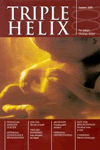The British Medical Association, has rejected a motion attempting to tighten the association's policy on physician assisted suicide. At its annual representative meeting in London on 27 June delegates welcomed the conclusion of the 3-4 March BMA consensus conference [1,2] to reject moves to change the law on physician assisted suicide, but rejected calls for this to be 'the settled opinion of the BMA for the forseeable future'. Michael Wilks, BMA ethics committee chairman, said that in order to 'lead the debate' the association should not be 'tied to any one position'. The BMA's failure to give a clear signal is further evidence that growing numbers of its members, not least leading members of its ethical committee, are unsure whether it is wrong for doctors to help patients kill themselves.
Medical technology and palliative care have now advanced to a level where most people in this country are able to die comfortably.
However, on rare occasions, patients' fears about distressing symptoms and loss of dignity or control over death can prompt them to request help in committing suicide. These fears may be potentiated by depression or a false sense of worthlessness and are often heightened by anxiety about overzealous and inappropriate medical intervention.
As well as treating physical and psychosocial symptoms, doctors have a duty not to administer intrusive medical treatment when the burden of that treatment outweighs its therapeutic benefit. Neither should they give treatment forcibly to competent patients who refuse it, even if that treatment is life-saving.
However, while upholding respect for patient autonomy, doctors must never intentionally give their patients advice or the means to commit suicide, either directly or indirectly. Any law allowing physician assisted suicide would threaten the trust necessary for the doctor-patient relationship to function, place pressure on patients (whether real or imagined) to request early death, and introduce a slippery slope to voluntary and involuntary euthanasia. Such legislation would also be impossible to police, might well undermine the development of palliative care services and could lead to patients being pressured to request suicide for economic reasons by family, carers or society at large.
Human beings are made in the image of God,[3] and belong to God.[4] Only God has the right to take life - and the taking of innocent human life (even if the life is 'one's own') is always wrong regardless of the wishes, circumstances or motivations of those involved.[5] In the same spirit the Hippocratic Oath enjoins that doctors 'give no deadly medicine to anyone if asked, nor suggest such counsel'. Despite the many changes in medicine these time-honoured values must be reaffirmed by the profession.
Accordingly, whilst as doctors we have a responsibility to provide appropriate treatment, palliation and support to patients who are suffering from distressing symptoms (whether in the context of terminal illness or not) - we must continue to resist any change in the law to allow physician assisted suicide.
































